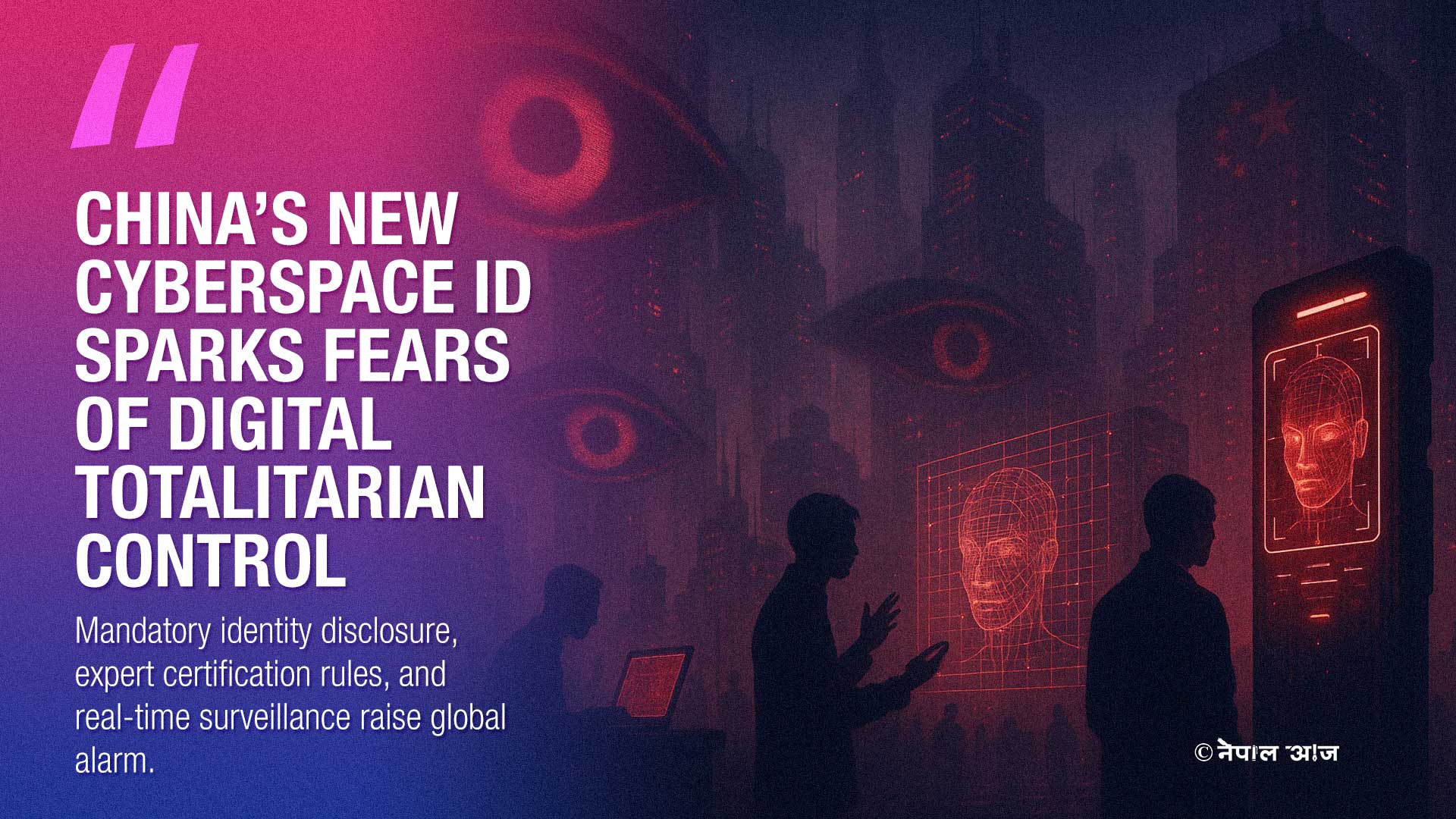China Enforces Cyberspace ID, Ending Online Anonymity and Tightening Control

Citizen surveillance and dissent crushing are set to become more severe in China, as netizens now need to reveal their identity and present verified qualifications before expressing their views on social media. Different opinions called it a clever and deceptive move by the Beijing government to tighten control on social media and crush digital dissent that was difficult to rein in so far due to anonymity and non-traceability.
With the imposition of the Cyberspace ID system, social media users are now legally bound to reveal their identity. It is also known as ‘Online ID’ or ‘Internet Card’. According to the Chinese authorities, the Cyberspace ID system began on July 15, 2025. While the government claimed that real information of the user remains confidentialon social mediaand protected from cyber fraud, the law enforcementagenciescan now easily monitor content created and trace the content creator.
The Cyberspace ID will be generated via face recognition scans before login or setting up accounts. All major Chinese social media apps, including WeChat, Weibo, Bilibili and Douyin, must verify these credentials before allowing relevant content. "This is the final nail in the coffin for anonymous browsing in China. It transforms the internet from a space of relative freedom into a panopticon where every click is traceable to an individual,” said Maya Wang, a senior researcher at Human Rights Watch (HRW).
The Chinese influencers who share information related to health, education, law, and finance must receive a certificate from the government by providing proof of expertise through degrees, certifications, or professional credentials. Chinese people protested the decision, with hashtags such as #NoDegreeNoDiscussion trending on Weibo before it was censored. Critics argued whether the new regulation was a genuine push for accuracy or a new tool of state control.
Legal expert MathildeVermainsaidthe new regulation may silence diverse voices and curb the fundamental right to free expression.“There is also unease about government overreach, with fears that the strict criteria for qualifications could be wielded to suppress independent or dissenting opinions. Such a scenario might limit discussions that challenge mainstream or official stances, thereby narrowing the spectrum of public discourse. This critique raises questions about the true intent behind the regulatory framework,” Vermain said.
The Online ID is a result of Beijing’s plans of centralisation of information on online behaviour, which allows it to penalise those who share critical information online, said KatjaDrinhausen, Head of Program (Politics & Society) at the Mercator Institute for China Studies (MERICS),a German thinktank. “A key concern of Beijing is preventing spillover from online discussions into offline action. To this end, tracking online dynamics and individual behaviour has long been a top agenda item,” she said.
Chinese youth were using VPN to escape state surveillance and retaliatory action against expressing any critical or dissenting views. However, the latest government move makes VPN useless as their identity will be shared with the government whenever they post anything on social media. “The web used to feel like a mask we could wear. Now it's gone, and we're all naked online," said one Chinese person on Weibo. Incidentally, the post was deleted soon.
China’s digital drive may be a “dystopian nightmare” as the Online ID wipes out anonymity and allows deep-surveillance by the state, said Tim Green, Programme Director (ID and Data) atLondon-basedMobile Ecosystem Forum (MEF). “Cyberspace ID will boost its ability to control citizens. Currently, a Chinese internet user blocked on one platform should still be able to access others. But if every online account is linked to a single ID number, the government could shut off all access,” Green said.
Calling the Cyberspace ID system a “ruse”, Lao Dunyan, a professor at Tsinghua University Law School, related it to"installing a surveillance device on every individual's online activity". Within anhour, her post was deleted and her account blocked. Many others echoed similar views about Online ID. Xiao Qiang, a research scientist studying internet freedom at the University of California, said “This is a state-led, unified identity system capable of real-time monitoring and blocking of users. It can directly erase voices it doesn't like from the internet, so it's more than just a surveillance tool - it is an infrastructure of digital totalitarianism."
China Enforces Cyberspace ID



